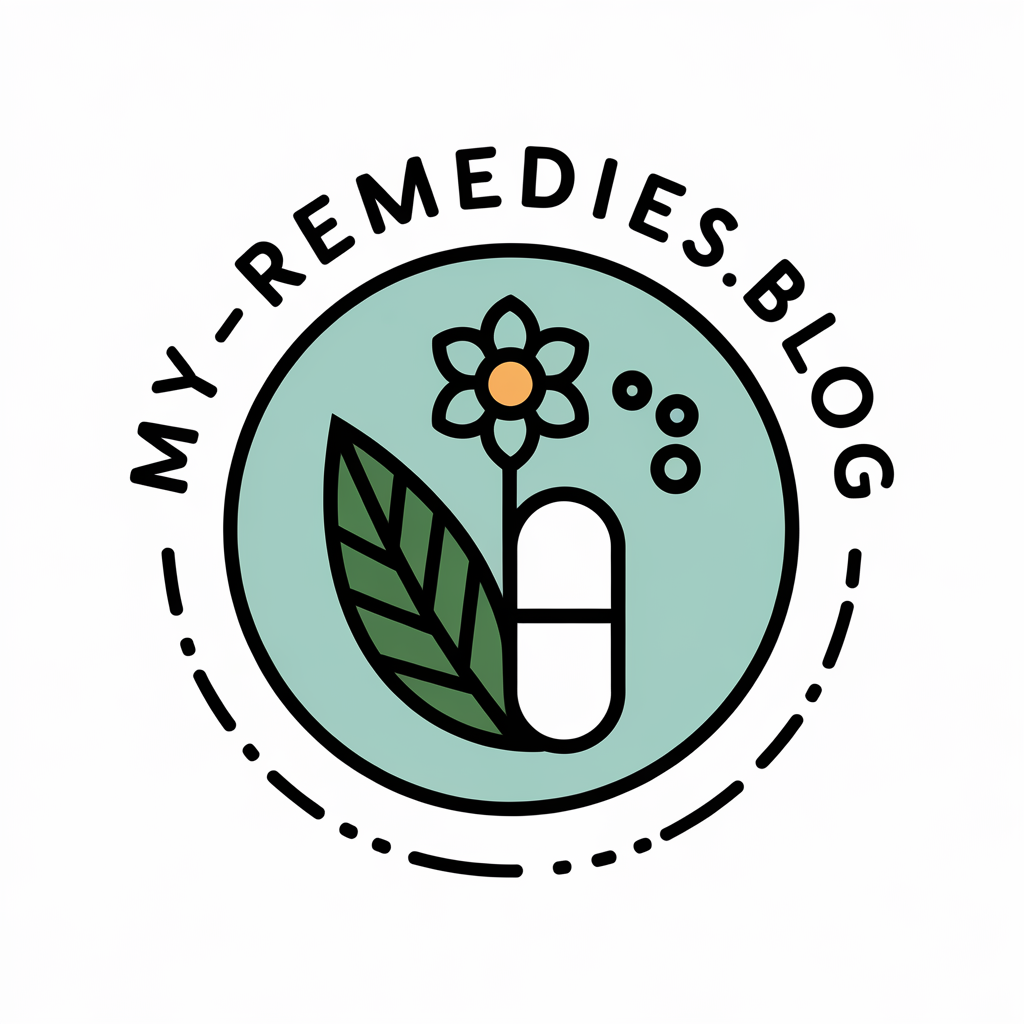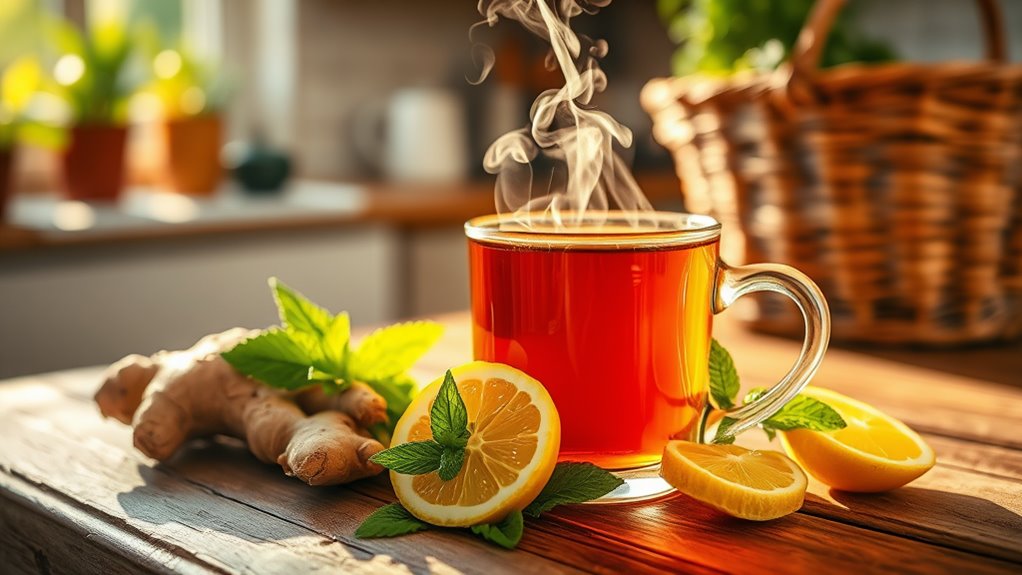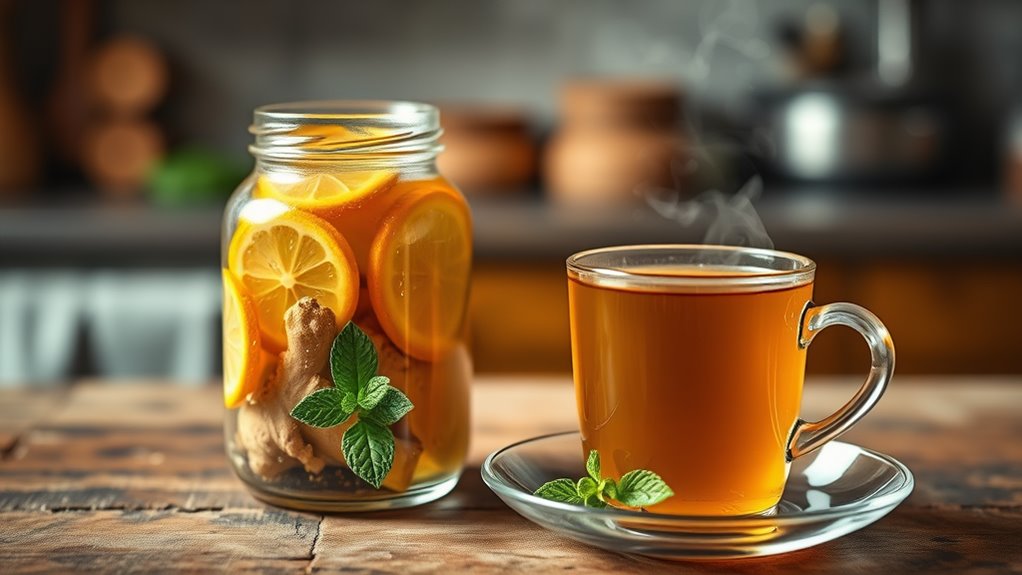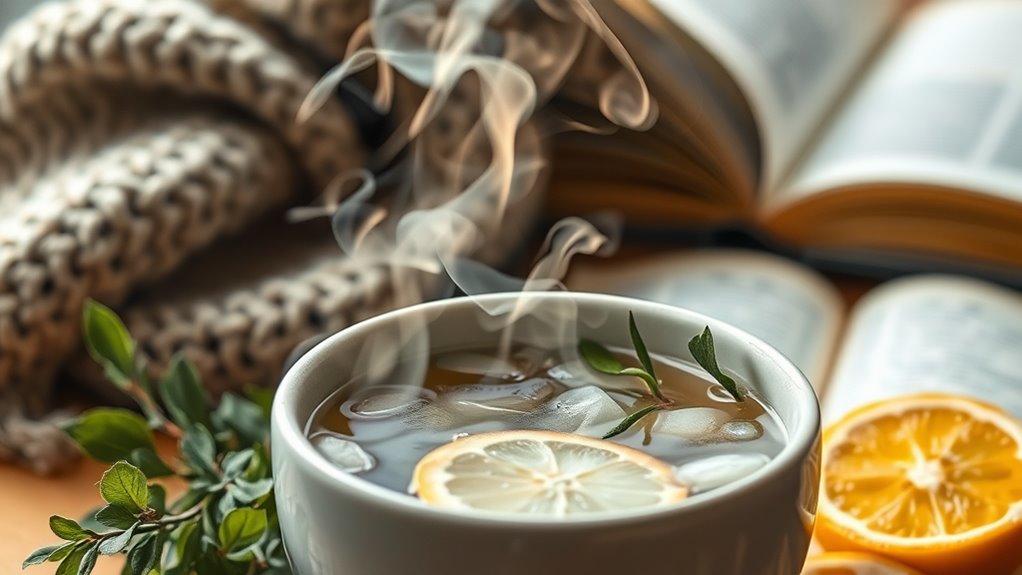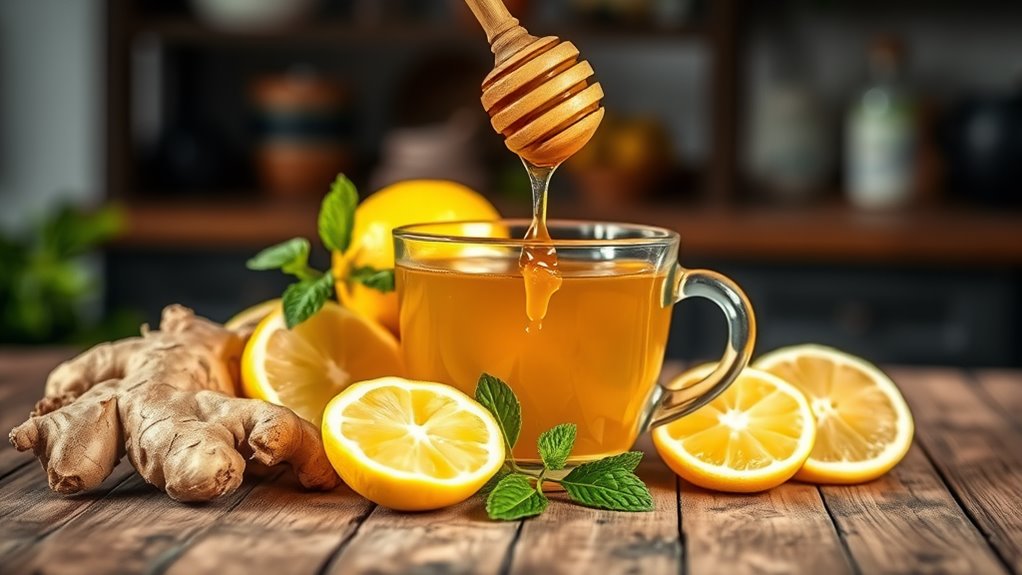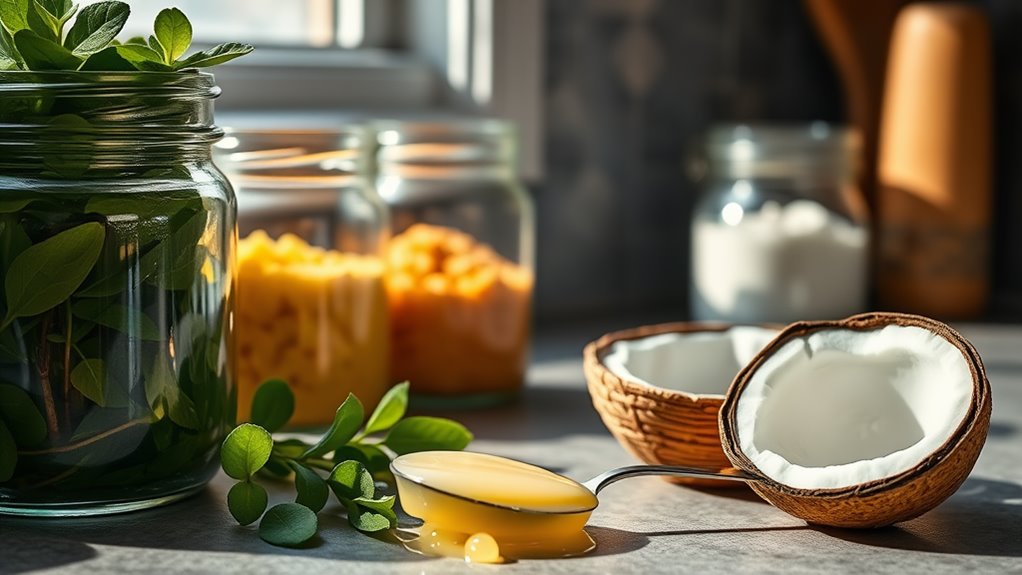This Tea Can Stop a Cold in Its Tracks!
When a cold strikes, you’re likely seeking effective remedies to ease your symptoms. One powerful solution lies in the right blend of herbal tea. With ingredients like ginger, echinacea, and chamomile, this tea doesn’t just soothe; it supports your immune response, helping your body fight off infections. Curious about how these ingredients work together and their benefits? Let’s explore the key components that can turn your tea into a potent ally against colds.
The Immune-Boosting Properties of Herbal Teas
Herbal teas are more than just a comforting beverage; they’re packed with immune-boosting properties that can help fend off colds. When you sip on herbal infusions, you’re not only enjoying a warm drink but also fortifying your body’s defenses.
Ingredients like echinacea, elderberry, and ginger work wonders by enhancing your immune system’s response to pathogens. Additionally, drinking herbal teas can provide natural remedies that have been shown to reduce the duration and severity of cold symptoms.
If you’re looking for the best tea for colds, consider those rich in antioxidants and vitamins. For instance, green tea contains catechins that may prevent illness and promote overall health.
Plus, chamomile tea can soothe your throat and improve sleep, essential for recovery. By incorporating these herbal teas into your routine, you’re giving your body a natural edge against infections.
Top Teas for Cold Relief
When you’re battling a cold, certain teas can be your best allies in finding relief. These teas not only taste great but also offer soothing benefits that can help you feel better faster. Here are some of the top teas you should consider:
| Tea | Benefits |
|---|---|
| Ginger Tea | Helps with inflammation and nausea |
| Peppermint Tea | Eases congestion and headaches |
| Chamomile Tea | Promotes relaxation and sleep |
| Echinacea Tea | Supports immune function |
| Lemon Tea | Boosts vitamin C and hydrates |
Incorporating these teas into your routine can enhance your immune-boosting properties and provide additional support during cold season.
How to Prepare the Perfect Cold-Fighting Tea
Although cold-fighting teas can be incredibly soothing, preparing them correctly makes all the difference in maximizing their benefits. Start with fresh, filtered water, and bring it to a rolling boil.
Depending on the tea you’re using, let it cool briefly if you’re brewing green or white tea, as they’re best steeped at lower temperatures. For herbal teas, a full boil is great.
Measure out about one teaspoon of loose tea or one tea bag for each cup. Steep the tea for the recommended time, usually 5 to 7 minutes, to extract its flavors and benefits.
While it brews, consider adding a squeeze of lemon for vitamin C and honey for its soothing properties. Adding ingredients like natural remedies can enhance the tea’s effectiveness in relieving symptoms.
Once ready, strain the loose leaves or remove the tea bag. Sip slowly and enjoy the warm, comforting benefits that can help ease your cold symptoms.
Scientific Evidence Supporting Tea’s Role in Cold Prevention
Research increasingly suggests that regularly consuming tea can bolster your immune system and potentially reduce your chances of catching a cold.
Studies indicate that certain compounds found in tea, like catechins and theanine, possess antiviral properties that may help fend off cold viruses. For instance, a study showed that green tea drinkers had a lower incidence of upper respiratory infections compared to non-drinkers.
Moreover, black tea’s rich content of flavonoids can enhance your body’s defenses against infections, providing a beneficial boost during cold season.
Additionally, sipping hot tea can keep your throat moist, alleviating sore throat symptoms you might encounter. Furthermore, incorporating Vitamin C sources into your diet alongside tea can further enhance immune function and provide additional protection against colds.
Additional Tips for Incorporating Tea Into Your Cold Remedy Routine
To effectively incorporate tea into your cold remedy routine, start by choosing varieties that align with your taste preferences and health goals. Herbal teas like chamomile or peppermint can soothe your throat, while ginger tea offers anti-inflammatory properties. Additionally, consider integrating teas that can help soothe your throat as part of your regimen.
Don’t forget to add a drizzle of honey for natural sweetness and additional health benefits.
Try to sip on tea throughout the day, especially when you’re feeling under the weather. This keeps you hydrated, which helps thin mucus and speeds up recovery.
Experiment by blending different teas; for instance, mix green tea with lemon for a vitamin C boost.
Lastly, make it a cozy ritual. Enjoy your tea in a warm, comfortable spot, perhaps with a good book or a blanket.
These small touches can elevate your experience, making the healing process enjoyable. So, grab your favorite mug and brew up some relief!
